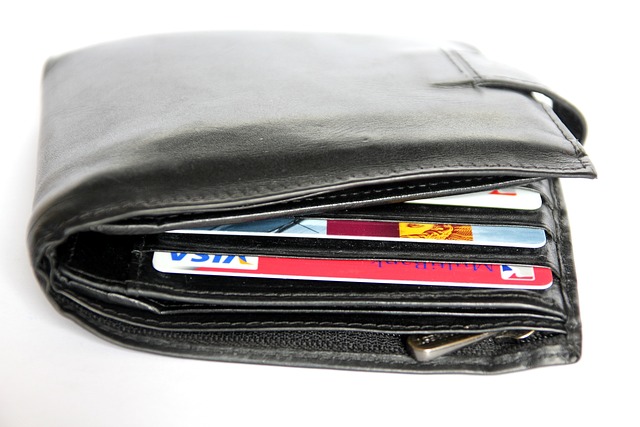The Ultimate Guide to Crypto Wallets
Author: Jameson Richman Expert
Published On: 2025-02-04
Prepared by Jameson Richman and our team of experts with over a decade of experience in cryptocurrency and digital asset analysis. Learn more about us.
Cryptocurrency has surged in popularity over the past decade, and with it, the need for secure storage solutions has become paramount. In this article, we will explore everything you need to know about crypto wallets, covering types, benefits, choosing the right wallet, and best practices for securing your digital assets.

What is a Crypto Wallet?
A crypto wallet is a digital tool that allows users to store, send, and receive cryptocurrencies. Unlike traditional wallets that hold physical currency, crypto wallets don't store actual coins. Instead, they store public and private keys, which are used to interact with blockchain networks. The public key is like an account number, while the private key is akin to your PIN; losing the private key means losing access to your cryptocurrencies.
Types of Crypto Wallets
Understanding the different types of crypto wallets is essential for making informed decisions regarding your digital assets. Generally, these wallets can be categorized into three main types:
1. Hot Wallets
Hot wallets are always connected to the internet and are convenient for frequent transactions. They are typically user-friendly and can be found in the form of mobile apps, desktop software, or web-based platforms. Examples include wallets provided by exchanges like Binance and MEXC.
While hot wallets offer ease of access, they are more vulnerable to hacking and security breaches. Hence, they are best used for smaller amounts of cryptocurrency that you may need for trading or daily transactions.
2. Cold Wallets
Cold wallets offer a higher level of security as they are not connected to the internet. Common cold wallets include hardware wallets and paper wallets. Hardware wallets, such as the Ledger and Trezor, store your private keys offline, making it extremely difficult for hackers to access your funds.
Cold wallets are excellent for long-term storage of cryptocurrencies that you don’t plan to use frequently. However, retrieving your funds requires a bit more effort since you will need the physical device or paper on which your keys are stored.
3. Custodial Wallets
Custodial wallets are managed by third parties, such as cryptocurrency exchanges or online wallet providers. In this case, the service provider holds your private keys. While custodial wallets offer user-friendly interfaces and ease of access, they do come with risks; if the provider gets hacked or goes out of business, your funds may be at risk.
Exchanges like Binance and MEXC often provide custodial wallet services, making it simple for customers to start trading immediately.
Benefits of Using Crypto Wallets
Using a cryptocurrency wallet offers several advantages over leaving your funds on exchanges. Here are some key benefits:
1. Enhanced Security
Using a crypto wallet, especially a cold wallet, adds an extra layer of security to your assets. You have full control over your private keys, reducing the risk of loss due to an exchange hack.
2. Ownership and Control
Having your own wallet means you have ownership of your cryptocurrencies. With exchanges, you are technically relying on the provider to store your assets, which can be risky.
3. Flexibility in Transactions
Wallets allow you to transact directly with others, giving you flexibility in trading and spending your digital currencies. No need for third-party intermediaries, like exchanges, which can sometimes impose fees and delays.
4. Privacy Protection
Most wallets provide enhanced privacy options. By using a wallet instead of an exchange, you can avoid sharing your personal information, although this can depend on the type of wallet used.

Choosing the Right Crypto Wallet
When selecting the right wallet for your needs, consider the following factors:
1. Security Features
Evaluate the security measures implemented by the wallet provider. For cold wallets, look for features such as PIN code access and recovery phrases. For hot wallets, ensure they have 2-factor authentication and encryption protocols.
2. User Experience
Choose a wallet that offers a user-friendly interface. New users might prefer simpler options, while more experienced users could benefit from advanced functionalities.
3. Supported Currencies
Check which cryptocurrencies the wallet supports. If you hold various altcoins, you may want to select a multi-currency wallet that accommodates your entire portfolio.
4. Backup and Recovery
Good wallets will provide a backup option to recover your funds in case you lose access. Ensure you understand how to back up and restore your wallet.
Best Practices for Securing Your Crypto Wallet
Once you've selected a wallet, follow these best practices to help secure your assets:
1. Use Strong Passwords
Create complex passwords that are difficult to guess. Avoid using easily obtainable personal information. Consider using a password manager to keep track of your passwords securely.
2. Enable Two-Factor Authentication
Always enable 2FA for an extra layer of protection. This additional step ensures that even if someone gets hold of your password, they still cannot access your wallet without your second authentication method.
3. Keep Software Updated
Always ensure your wallet software is up-to-date to protect against vulnerabilities. Software updates often include essential security patches.
4. Be Wary of Phishing Attacks
Always double-check URLs and emails that claim to be from your wallet provider. Attackers often set up fake websites to trick users into entering their login credentials.
5. Store Private Keys Securely
If you use a wallet that allows you to store your private keys, ensure they are stored in a secure location. For cold wallets, keep the device in a safe place, and for paper wallets, consider using a safe deposit box.
Conclusion
Understanding crypto wallets is crucial before embarking on your cryptocurrency journey. By choosing the right wallet, securing it properly, and applying best practices, you can enjoy the benefits of owning digital assets while minimizing risks. For a more hands-on trading experience, consider starting with exchanges like Binance or MEXC.
As the cryptocurrency landscape continues to evolve, staying informed about wallet technologies and methods for securing your assets is foundational for anyone interested in this exciting world. Happy investing!